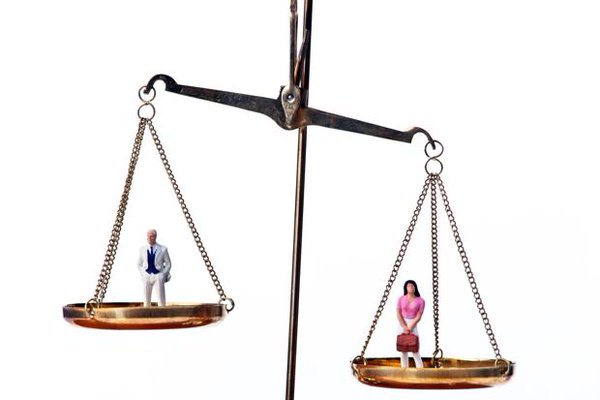‘More work needs to be done,’ is what people say whenever some unachievable social goal is shown to be another 200 years away. And it was said a lot this week after it emerged that women still earn 18 per cent less than men on average. As the Guardian reported:
The Institute for Fiscal Studies (IFS) also found that the gap balloons after women have children, raising the prospect that mothers are missing out on pay rises and promotions. That was echoed by a separate report yesterday suggesting that male managers are 40 per cent more likely than female managers to be promoted.
What’s odd is that almost nowhere in the supposedly intelligent press, let alone BBC Radio – where biological explanations for almost anything are taboo – can I find an attempt to explain why this is, other than societal explanations that can be solved by government intervention. For example, as Ben Southwood of the Adam Smith Institute points out, the gender pay gap has much to do with choice:
Actually, there is a gender pay gap, but the entirety of it is determined by ‘legitimate’ factors—things which make men’s and women’s labour different. As well as women having jobs they rate as more pleasant, and jobs that are objectively less risky, as well as doing more part-time work, women leave the labour market during crucial years, setting them substantially back in labour market terms. That is, the gap comes down to women’s choices.
This is not necessarily a bad thing, since childcare seems to contribute to mothers’ well-being and happiness, and looking after children is certainly not an unimportant task. But it implies that, whether or not society as a whole, through schools, culture, upbringing and so on, is the reason women do most of the labour in the home and in child rearing, firms are not discriminating against women.
This is a point also made by Cynthia Than (AKA Ninja Economics), on the subject of women in tech:
When controlled for all factors other than gender, the earnings difference between men and women is about 6.6 per cent, something most people don’t know. The casual observer often has an exaggerated view of the gender wage gap since occupational choices aren’t reflected in the statistics that are cited when the topic of wage equality is discussed in the media.
Choice is considered an unquestioned good in society, but the more choice that men and women have in their lives, the more that gender differences become pronounced. So freedom ≠ equality. This is as true of career choices as it is with children’s toys. Of course there are expectations and social pressure placed on people, but given the choice, more women than men choose to be a stay-at-home parent.
Childcare is very time consuming and demanding, and even with the help of nannies, it reduces an individual’s potential to put in the hours demanded by most skilled jobs. This may explain why the gap remains more solid among those with more qualifications, since highly-skilled jobs require more attention away from home.
Some people can have it all, but in most cases they can’t. That conundrum is more associated with women, since they are more likely to make career sacrifices. In one in five homes the man now does more childcare than the woman, but it is extremely unlikely this will ever reach full parity.
This is not to deny that sexism in the workplace plays a big part in salary disparity, but even much of this is at least explained by basic biology; men’s confidence in demanding higher salaries is linked to testosterone, the hormone that also ensures that men are far more likely to die in accidents or through violence. I say this as a fairly low-testosterone male, who currently shares the childcare with his spouse, has no interest in risk or violence, earns little and sometimes gets his wife to park for him because he has such terrible spatial awareness.
Ultimately, a lot of this comes down to worldview, and whether we regard each person solely as an atomised individual, or part of a family unit (it’s obvious where my prejudices are). There are economic benefits to having children, but they largely depend on being married; on top of the poverty-insulating effects of marriage, there is the benefit of the husband’s increased earnings post-fatherhood, and the long-term financial support of children. Assuming they don’t go into the media, that is.







Comments